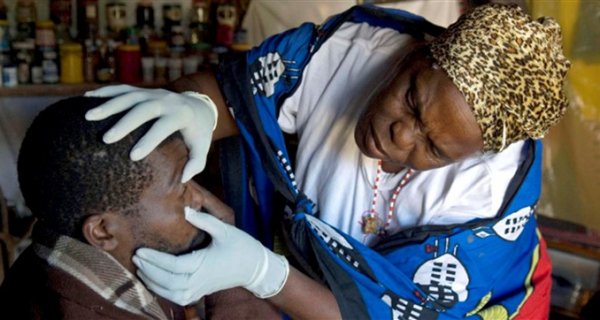The head of the Department of Traditional Medicine at the National Institute for Health Research (INIS) spoke, in Macau, on the sidelines of the closing of a cooperation program on traditional medicine.
Feliciano Njele Hequele expressed hope that China can take knowledge, "technological advancement" and the reference laboratories it has in this area to develop traditional medicine in Portuguese-speaking countries.
Program participants, coming from seven Portuguese-speaking countries, said they believe the potential of local plants could even interest businesspeople in China, where traditional medicine is already a huge business, Hequele added.
"We have reached a time when these plants can be enhanced from a more technical, scientific perspective and can even be a powerhouse from an economic point of view", he argued.
The INIS leader, under the supervision of the Ministry of Health, expressed interest in a "more formal exchange", which could include the signing of cooperation protocols.
Hequele highlighted that Angola can learn from China when it comes to the integration between conventional medicine and traditional medicine, which uses natural resources, "cheap and easily accessible by the population".
The secretary-general of the Forum for Economic and Trade Cooperation between China and Portuguese-speaking Countries, better known as the Macau Forum, said he hoped the program could lead to "closer links in the area of health", including an "exchange of experiences and mutual visits".
Ji Xianzheng added that the initiative, carried out in conjunction with the Guangdong Macau Traditional Chinese Medicine Scientific and Industrial Park (GMTCM), allowed participants to get in touch with "important companies" in this area.
The associate president of GMTCM Park highlighted that, for two weeks, experts and government leaders from Portuguese-speaking countries were able to visit traditional Chinese medicine hospitals and research laboratories.
In addition, Xu Yan Bin said that participants also visited universities, government departments and companies in the cities of Zhuhai, Jiangmen and Guangzhou in neighboring Guangdong province.
The director recalled that the Park's goal is the "industrialization and internationalization" of traditional Chinese medicine and has already helped with the registration of three medicines in Mozambique and 11 in Brazil.
Xu Yan Bin added that the institution can also help Portuguese-speaking countries, which he described as "rich in natural resources, medicinal plants and traditional cultures".
In 2003, Beijing established Macau as a platform to strengthen economic and trade cooperation with the Portuguese-speaking bloc and, in that same year, created the Macau Forum.
This multilateral mechanism includes, in addition to China, nine Portuguese-speaking countries: Angola, Brazil, Cape Verde, Guinea-Bissau, Equatorial Guinea, Mozambique, Portugal, São Tomé and Príncipe and Timor-Leste.







